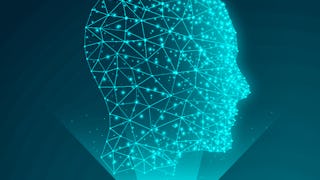NVIDIA: Fundamentals of Machine Learning Course is a foundational course designed to introduce learners to key machine learning concepts and techniques. This course is the first part of the Exam Prep (NCA-GENL): NVIDIA-Certified Generative AI LLMs Associate specialization.



NVIDIA: Fundamentals of Machine Learning
This course is part of Exam Prep (NCA-GENL): NVIDIA-Certified Generative AI LLMs Specialization

Instructor: Whizlabs Instructor
Included with 
Recommended experience
Recommended experience
What you'll learn
Understand the fundamentals of AI, ML, and Deep Learning, and their key differences.
Implement supervised learning techniques like classification and regression.
Apply clustering methods and time series analysis using ARIMA.
Leverage NVIDIA RAPIDS for GPU-accelerated ML workflows.
Skills you'll gain
Details to know

Add to your LinkedIn profile
February 2025
6 assignments
See how employees at top companies are mastering in-demand skills

Build your subject-matter expertise
- Learn new concepts from industry experts
- Gain a foundational understanding of a subject or tool
- Develop job-relevant skills with hands-on projects
- Earn a shareable career certificate


Earn a career certificate
Add this credential to your LinkedIn profile, resume, or CV
Share it on social media and in your performance review

There are 3 modules in this course
Welcome to Week 1 of the NVIDIA: Fundamentals of Machine Learning course. This week, we will explore ML Basics and Data Preprocessing, starting with an introduction to the course and best practices for exam success. We will define machine learning and set expectations for the Fundamentals of Machine Learning course. As we progress, we will differentiate between AI, Deep Learning, and Machine Learning and examine the types of machine learning. We will also cover the key steps involved in the machine-learning process. By the end of the week, we will dive into data preprocessing essentials, understanding its significance in machine learning workflows. A demo session on data preprocessing will provide hands-on insights into preparing data for model training.
What's included
9 videos2 readings2 assignments1 discussion prompt
Welcome to Week 2 of the NVIDIA: Fundamentals of Machine Learning course. This week, we will explore the fundamentals of Supervised Machine Learning and Modal Evaluation, covering both Classification and Regression techniques. We will begin by understanding the principles of classification and regression models and their applications. As we progress, we will explore the process of model selection, training, and evaluation, followed by an in-depth discussion on evaluating classification models using the Confusion Matrix. Additionally, we will examine key evaluation metrics for both classification and regression models through theoretical explanations and hands-on demonstrations.
What's included
8 videos1 reading2 assignments
Welcome to Week 3 of the NVIDIA: Fundamentals of Machine Learning course. This week, we will cover Unsupervised Learning, Advanced Techniques & GPU Acceleration, starting with unsupervised learning techniques like KMeans, hierarchical, and density-based clustering, along with a hands-on demo. We'll also explore association rule mining and NVIDIA RAPIDS for GPU-accelerated workflows, including a demo. Additionally, we'll learn about cross-validation techniques (GridSearch and Randomized Search) with a practical demo and conclude with the ARIMA model for time series analysis, along with a hands-on demo.
What's included
11 videos3 readings2 assignments
Instructor

Offered by
Explore more from Cloud Computing
Why people choose Coursera for their career




New to Cloud Computing? Start here.

Open new doors with Coursera Plus
Unlimited access to 10,000+ world-class courses, hands-on projects, and job-ready certificate programs - all included in your subscription
Advance your career with an online degree
Earn a degree from world-class universities - 100% online
Join over 3,400 global companies that choose Coursera for Business
Upskill your employees to excel in the digital economy
Frequently asked questions
Access to lectures and assignments depends on your type of enrollment. If you take a course in audit mode, you will be able to see most course materials for free. To access graded assignments and to earn a Certificate, you will need to purchase the Certificate experience, during or after your audit. If you don't see the audit option:
The course may not offer an audit option. You can try a Free Trial instead, or apply for Financial Aid.
The course may offer 'Full Course, No Certificate' instead. This option lets you see all course materials, submit required assessments, and get a final grade. This also means that you will not be able to purchase a Certificate experience.
When you enroll in the course, you get access to all of the courses in the Specialization, and you earn a certificate when you complete the work. Your electronic Certificate will be added to your Accomplishments page - from there, you can print your Certificate or add it to your LinkedIn profile. If you only want to read and view the course content, you can audit the course for free.
If you subscribed, you get a 7-day free trial during which you can cancel at no penalty. After that, we don’t give refunds, but you can cancel your subscription at any time. See our full refund policy.
More questions
Financial aid available,






